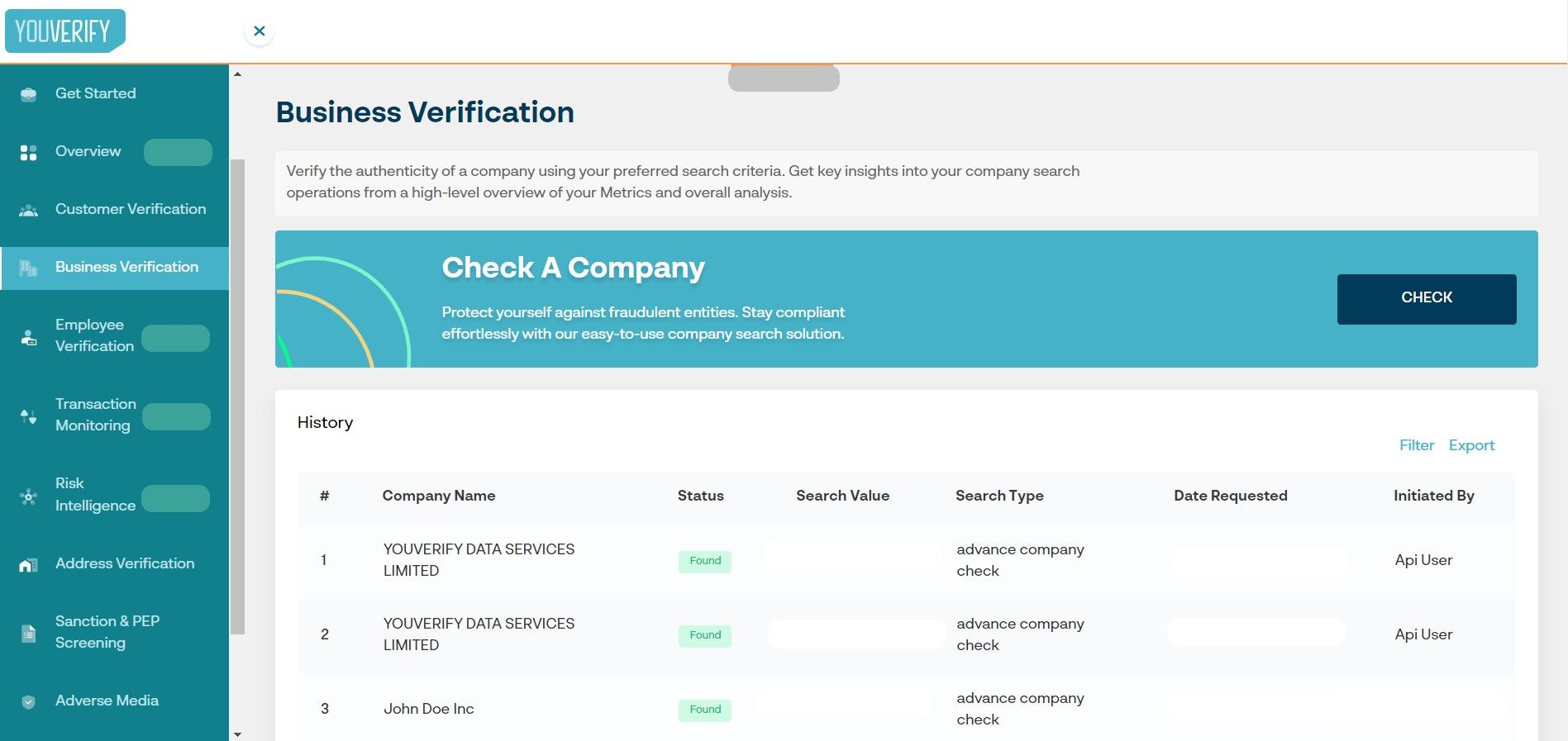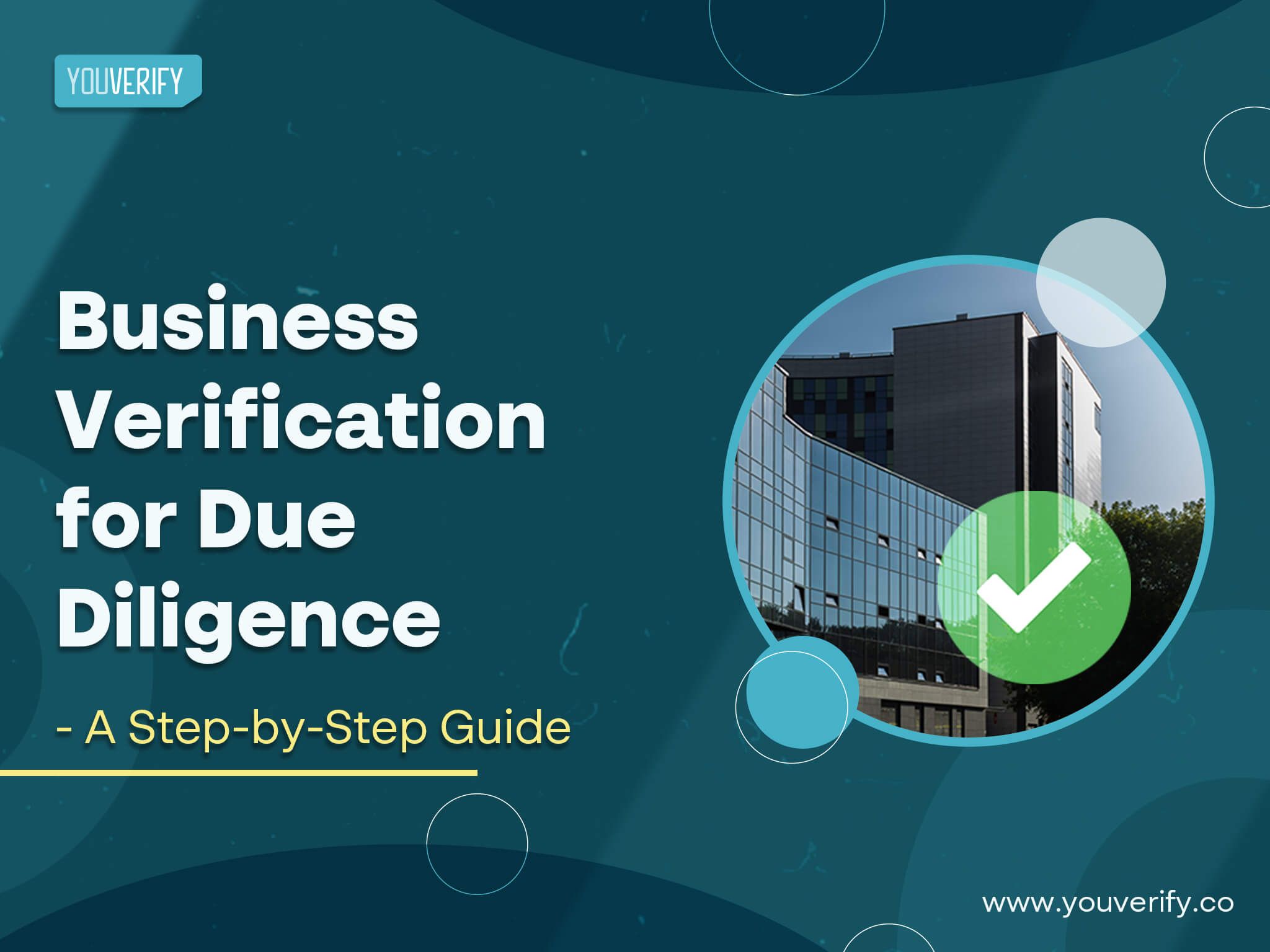Due Diligence is easily a crucial aspect of running a business that should never be overlooked today. Whether you are considering a new partnership or investment opportunity, or simply want to ensure the credibility of a potential client, conducting thorough business verification is essential.
This comprehensive guide will walk you through the key steps involved in the process, providing you with the knowledge and tools necessary to make informed decisions.
Why is Business Verification Important for Due Diligence?
Before we delve into the step-by-step process of conducting business verification, it is crucial to understand why this practice is so significant in the context of due diligence.
The Financial Action Task Force (FATF) recommendations set out a framework of measures that can help countries fight money laundering, terrorist financing, and weapons of mass destruction financing.
When you engage in any business transaction, you want to ensure that you are dealing with reputable and trustworthy individuals or organizations.
By conducting thorough business verification, you can mitigate risks, protect your interests, and make informed decisions based on accurate information.
What Are Key Steps in Conducting Business Verification
Conducting business verification is an essential step businesses need to take to ensure their authentication. Below are some of the key steps in conducting business verification:
1. Gathering necessary documentation for verification
The first step in conducting business verification is to gather all the necessary documentation. This includes legal documents, financial records, licenses, permits, and any other relevant paperwork that can provide insights into the legitimacy and credibility of the business in question. It is important to ensure that the documents are up-to-date, accurate, and complete.
Once you have collected the required documents, it is essential to carefully review them. Pay close attention to details such as company names, addresses, and dates to ensure consistency and accuracy. Any discrepancies or inconsistencies should raise red flags and prompt further investigation.
2. Verifying business licenses and permits
One of the key aspects of business verification is verifying the licenses and permits of the company. This step ensures that the business is operating legally and within the boundaries of the law. Start by checking the relevant government websites or databases to confirm the validity of the licenses and permits claimed by the business. Cross-reference the information provided with the official records to ensure authenticity.
Additionally, it is crucial to verify whether the licenses and permits apply to the specific industry or sector in which the business operates. Different industries have different regulations, and it is important to ensure that the business is compliant with all the requirements.
3. Checking the business's financial health and stability
Another crucial aspect of business verification is assessing the financial health and stability of the company. This step involves analyzing financial statements, balance sheets, income statements, and cash flow reports to gain insights into the financial performance of the business.
Look for signs of financial stability, such as consistent profitability, healthy cash flow, and a manageable level of debt. It is also important to review any past or ongoing legal or financial disputes that the business may be involved in. This can include lawsuits, bankruptcy filings, or any other financial red flags that could indicate potential risks or instability.
4. Assessing the business' reputation and track record
A business's reputation and track record can speak volumes about its credibility and reliability. Conducting thorough research to assess the reputation of the business is an important step in the verification process. Look for customer reviews, testimonials, and feedback from previous clients or partners.
Additionally, consider checking industry publications, news articles, and social media platforms for any mentions or discussions about the business. Negative publicity, controversies, or unresolved customer complaints should be taken into account and may warrant further investigation.
5. Conducting background checks on key individuals
In addition to verifying the business itself, it is equally important to conduct background checks on key individuals associated with the company. This includes the business owners, executives, directors, and any other individuals who play a significant role in the organization.
Background checks can provide valuable insights into the professional history, reputation, and credibility of these individuals. Utilize reputable background check services or agencies to conduct thorough investigations.
Look for any criminal records, legal disputes, or negative professional experiences that could raise concerns about the integrity or suitability of the individuals involved.
6. Utilizing third-party services for business verification
While conducting business verification in-house can be effective, utilizing third-party services can provide an added layer of assurance and expertise. Several reputable companies, like Youverify, specialize in business verification and due diligence services. These companies have access to extensive databases, resources, and expertise that can help uncover any hidden risks or red flags.
By partnering with a trusted third-party service provider, you can leverage their knowledge and resources to conduct comprehensive business verification. This can save you time, effort, and potentially costly mistakes by ensuring that you have access to accurate and up-to-date information.
Recommended - The 4 customer due diligence requirements for businesses.
What Are The Best Practices for Effective Due Diligence?
Now that you are familiar with the key steps involved in conducting business verification, it is important to follow some best practices to ensure effective due diligence. Here are some best practice suggestions to ensure effective due diligence:
a. Start the verification process early:
It is crucial to initiate the verification process as early as possible in any business transaction. This allows for sufficient time to gather and analyze the necessary information, reducing the risk of making hasty decisions based on incomplete or inaccurate data.
b. Maintain confidentiality and data security:
During the verification process, you will likely come across sensitive information about the business and individuals involved. It is essential to handle this information with the utmost confidentiality and ensure that data security measures are in place to protect it from unauthorized access or disclosure.
c. Seek legal advice if necessary:
Depending on the complexity of the business transaction or the legal requirements involved, it may be advisable to seek legal advice from professionals specializing in due diligence. They can provide valuable insights, and guidance, and ensure that you are complying with all applicable laws and regulations.
Read Also - How to Validate and Verify Business Addresses for Compliance
Achieving Due Diligence in Today’s Business World - A Step-By-Step Guide
Conducting thorough business verification is an essential component of effective due diligence. Here is a step-by-step guide on how you can achieve due diligence for compliance in today’s business world:
Step 1: Create an account and login to the Youverify platform.

Step 2: Navigate to “Business Verification” on the left side of your home page.

Step 3: Select “ Check”.

Step 4: Select either “Company Search” (gives you basic company information) or “Advanced Company Search” (gives you elaborate information including details on shareholders and other affiliated entities).

Step 5: Fill up the requested information like “Country”, “Registration Number”, “Company Name”, etc and click “Search”.
Detailed information about the business will be displayed including the business’s address for validation and verification.
By following the step-by-step guide outlined in this article, you can ensure that you have the necessary knowledge and tools to make informed decisions and mitigate risks.
Remember to gather all necessary documentation, verify licenses and permits, assess the business's financial health and reputation, conduct background checks, and consider utilizing third-party services for added expertise.
By adhering to best practices and seeking legal advice when needed, you can conduct business verification with confidence and protect your interests.
Youverify empowers businesses to conduct KYC and AML due diligence for screening customers for compliance and real-time risk detection. Request a demo today to get started.



